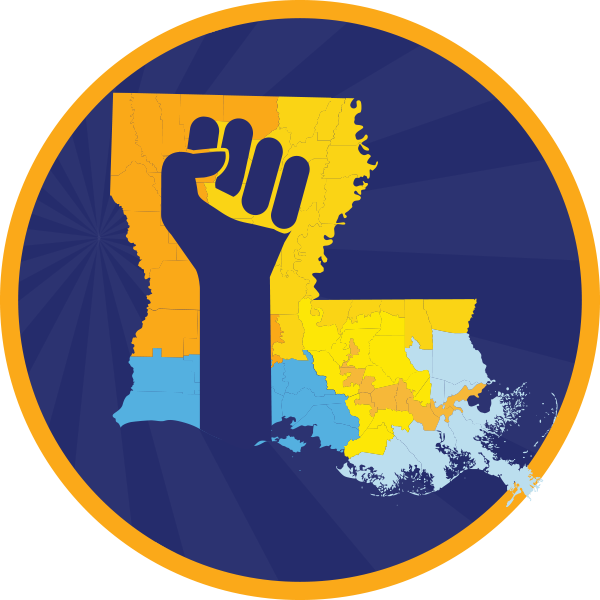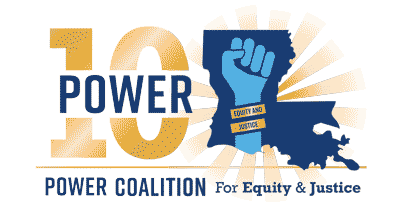
Ashley Shelton, Executive Director of the Power Coalition of Equity & Justice, discusses redistricting in Louisiana.
By Ashley K. Shelton
Originally published in Word in Black
When any storm makes its way into the Gulf, one of my greatest fears is always that history will repeat itself. An overwhelming sense of concern came over me as I watched Hurricane Ida grow in strength and head into the Gulf. I thought to myself, “This cannot be happening again.”
I have been organizing at the local, state, and federal levels for more than 16 years. I have seen a clear pattern from my work in disaster recovery that communities of color are often left behind in the recovery process. For those of us in Louisiana, we will not let history repeat itself. We can no longer live in a long-term state of resiliency, and we must change the pattern of never being made whole storm after storm. The people must be centered in this recovery and given the tools needed to recover.
We owe it to ourselves to insist on policy changes at the local, state, and federal levels to ensure that communities of color, low-income areas, and rural communities are prioritized. We know there are broken policies that do more harm than good. We need representation from our local elected officials willing to ensure we thrive, not just survive. We have been surviving through natural disasters, police brutality, divisive politicians, and a global health crisis. We deserve more from our elected officials than just survival. We need not just be heard; we need leaders with the courage to center and act on behalf of their constituents.
Our elected officials’ purpose is to fight for us. They work for us – not the other way around. To ensure that every community is represented, we must be a part of redistricting. The method of redistricting happens every 10 years after the census data is released. It is the drawing of district lines to determine whether communities can elect candidates of choice. We all have a voice in drawing the lines of our communities.
In partnership with Data for Progress, a conservative polling firm, Power Coalition surveyed over 1,000 likely voters in Louisiana from Apr. 28 to May 20, 2021. One of the questions asked of participants is if they believed Louisiana should spend more money on policies which help eliminate racial inequalities and expand voting rights and access. The majority of responses said yes. The people of Louisiana are ready to be represented.
Why should you care about a process that happens every decade? Communities that define their communities of interest and draw their own maps generate a more powerful voice. A community with a powerful voice receives more resources. Communities have the power to change the narrative and elect candidates of choice. Over the past year, we have seen what happens when our communities come together.
In Louisiana, specifically, we know the power of communities coming together and have seen how we take care of each other in the aftermath of Hurricane Ida and every other storm. Certainly, most of that work, hauling trash, offering shelter, providing hot meals and so much more, should be done by the government, and as we fight to fix broken policies so more dollars flow to the community.
The State of Louisiana has announced the dates and locations for their redistricting roadshow. The first date is Oct. 20 in Monroe, Louisiana. Your voice and participation are needed to have your comments and maps on the record as the roadshow. Power Coalition will be hosting more educational Crowd Academies to learn how to draw maps. We are also working with partners across the state to create tools and support as you develop your maps and comments.
Redistricting is where we have the single most power to ensure that our voice, our vote, has real power. We have the power to change the narrative and protect the future of our communities. We can do that by participating in community mapping exercises, calling our state legislators, and telling them we want a fair and equitable redistricting process.
Ashley Shelton is the executive director of the Power Coalition of Equity & Justice, a statewide 501(c)(3) table in Louisiana. She is a founding member of the Black Southern Women’s Collective and the former vice president of programs at the Louisiana Disaster Recovery Foundation.

